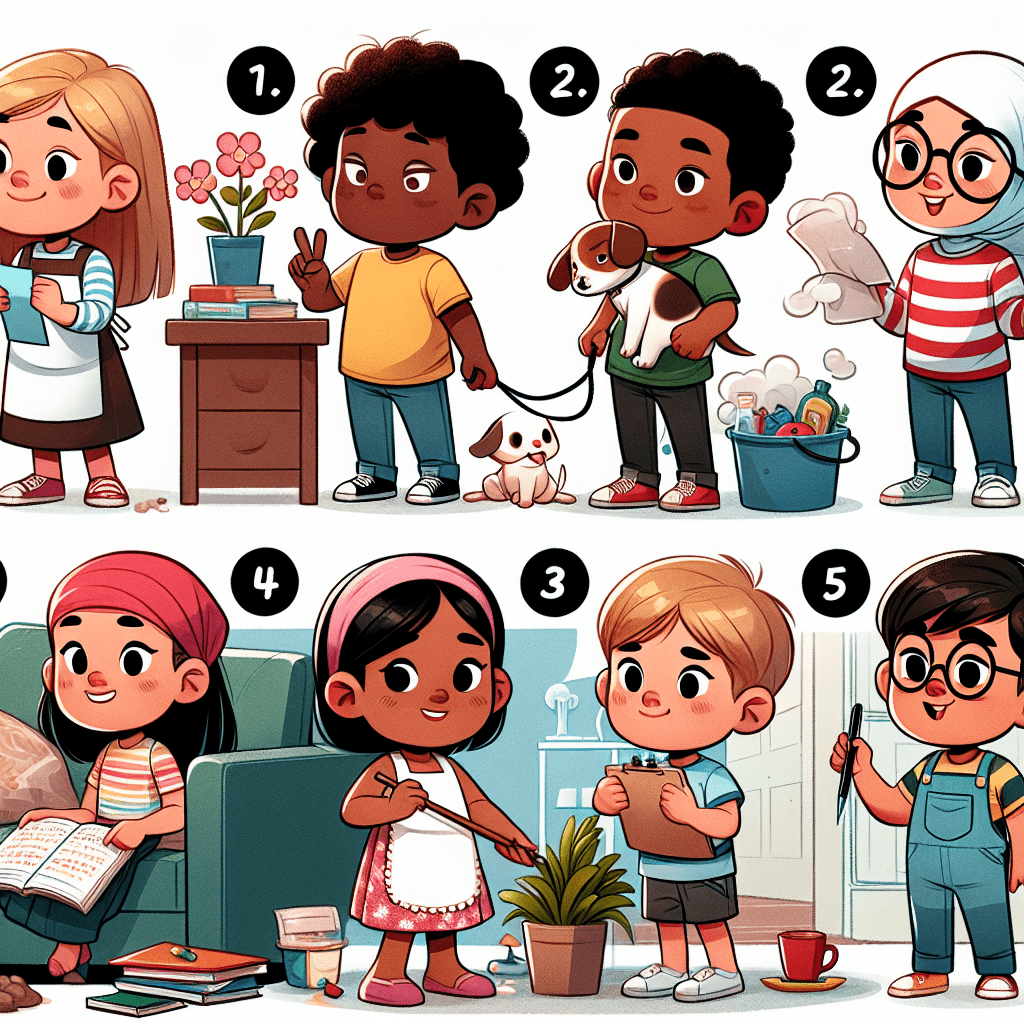

Growing Up Responsible: 5 Effective Ways to Instill Accountability in Kids
In our fast-paced world where distractions are abundant and responsibilities sometimes feel overwhelming, teaching our children the value of accountability can seem like a daunting task. As parents, caregivers, and educators, we want our children to grow up into responsible adults who not only understand their actions but also embrace the consequences that may come from them. Instilling a sense of accountability in kids is essential for their personal development, and it lays the foundation for a future filled with integrity and responsibility.
In this blog post, we’ll explore five effective strategies that can help you foster accountability in your children. These approaches are practical, research-backed, and can help guide your kids toward a more responsible adulthood.
1. Lead by Example
Children are like sponges; they absorb everything happening around them. One of the most powerful ways to teach accountability is to exemplify it in your daily life.
Model Responsible Behavior: When you take responsibility for your actions, acknowledge mistakes, and strive to rectify them, your children observe and learn. Share moments with them when you’ve faced the consequences of your actions or when you’ve owned up to a mistake, emphasizing the importance of accountability.
For example, if you missed an important appointment, explain how you plan to handle it — maybe you’ll apologize and reschedule. This not only shows them that everyone makes mistakes but also demonstrates how to learn and grow from those experiences.
Practice Open Communication: Encourage your kids to express their feelings and opinions. If they feel comfortable discussing their thoughts with you, they’ll be more likely to own up to their mistakes instead of hiding them.
2. Create a Responsibility Chart
Visual aids can be incredibly effective for kids, especially when it comes to tracking responsibilities and accomplishments.
Set Up a Chart: Design a responsibility chart where your children can see their tasks and responsibilities clearly laid out. This can include daily chores, homework, and even personal goals they want to achieve.
Incorporate Rewards and Consequences: Recognize and celebrate when they complete their tasks or when they show responsibility. This could be verbal praise, extra screen time, or a small treat. Conversely, outline the consequences for not fulfilling their responsibilities. This dual approach reinforces the importance of accountability by providing both positive reinforcement and gentle reminders of the impacts of inaction.
3. Encourage Problem-Solving
One of the core components of accountability is the ability to think through problems and develop solutions independently.
Teach Decision-Making Skills: When your child faces a situation that requires accountability, guide them through the process of finding solutions. Ask open-ended questions that encourage them to think critically. Instead of giving them the answers, prompt them to consider various outcomes from their actions. Questions might include:
- "What do you think will happen if you don’t finish your homework on time?"
- "How could you resolve this disagreement with your friend?"
Allow for Natural Consequences: While it’s painful to watch our children face the fallout from their actions, experiencing natural consequences is crucial for learning. If your child refuses to wear a jacket on a chilly day, let them feel the discomfort rather than insisting they change. These real-life lessons can be more impactful than words.
4. Establish Routines and Expectations
Predictability can help children understand their responsibilities more clearly, which allows them to take ownership of their actions.
Create Daily Routines: Establish a consistent schedule for daily activities like chores, homework, and bedtime. Children thrive in environments with clear expectations and routines. When they’re used to completing certain tasks at specific times, accountability becomes a habit that they naturally fall into.
Involve Them in Setting Expectations: Discuss responsibilities with your children and set age-appropriate expectations together. For instance, if your child is old enough to help with dinner, involve them in meal planning and preparation. This cocreative process helps them take ownership and feel committed to their responsibilities.
5. Use Reflection as a Tool
We live in a world where reflection often gets overshadowed by our busy lives. Encouraging your children to reflect on their actions can enhance their sense of accountability.
Implement Family Discussion Nights: Dedicate time each week for a family discussion where everyone shares their experiences, feelings, and any mistakes they’ve made. This non-judgmental space encourages openness and helps kids process their actions and decisions.
Encourage Journaling: Journaling can serve as a great form of reflection. Have your children write about their day, focusing on what they did well and where they might have fallen short. This practice not only enhances writing skills but encourages critical thinking about accountability.
Conclusion
Instilling accountability in children is essential for their growth into responsible adults. By modeling responsible behavior, creating visual aids, encouraging problem-solving, establishing routines, and using reflection techniques, we can guide our kids toward understanding and owning their actions. As we embark on this meaningful journey, it’s vital to remember that accountability is a skill that takes time and practice to develop. Through patience, guidance, and love, we can equip our children with the tools they need to navigate the complexities of life.
In nurturing a culture of accountability, we prepare our children for both the triumphs and the challenges they will face. The ultimate goal is to foster a sense of independence and responsibility, allowing them to forge their paths in life while being mindful of their actions and their impacts on others.
FAQs
Q1: At what age should I start teaching my child about accountability?
A1: Accountability can be introduced as early as preschool age. Even young children can understand basic concepts of responsibility through play and simple chores.
Q2: How can I encourage my child to take responsibility for their homework?
A2: Set clear expectations and create a routine for homework time. Offer help when needed but emphasize the importance of them completing it independently.
Q3: What should I do if my child refuses to accept responsibility?
A3: Have an open conversation with your child about the importance of accountability. Help them understand the consequences of their actions without being punitive or dismissive.
Q4: How can I reinforce accountability in my child without using punishment?
A4: Focus on positive reinforcement rather than punishment. Celebrate small successes, and use mistakes as learning opportunities instead of reasons for disciplinary action.
Q5: Is it ever too late to teach accountability?
A5: It’s never too late! Even older children and teenagers can learn the value of accountability through consistent discussions, responsibilities, and reflection. The key is open communication and support.
Centered Text:
Instantly Access Your Free Children’s Books Here! (https://payhip.com/BlueCherryStore) – Disclaimer: As an Amazon Associate, I earn from qualifying purchases, I may earn a commission from qualifying purchases as an affiliate. Please note that I only recommend products I believe will provide value to my readers. (M)







